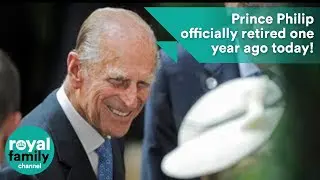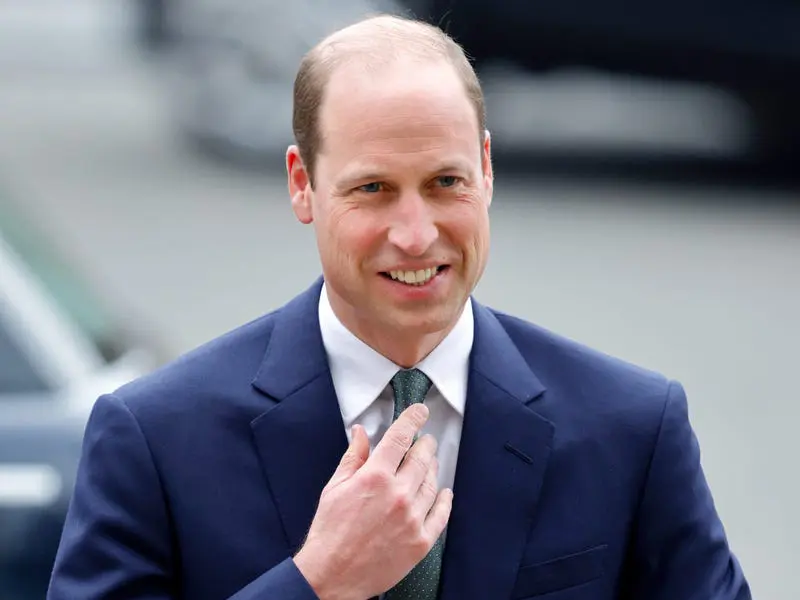Royal life is often interconnected with duty, tradition, and a hefty dose of public scrutiny. Members of the British royal family are known to dedicate their lives to representing the crown and its values. However, the question arises: is there room for retirement? While Princess Anne has succinctly stated that there isn’t a retirement plan in royal life, history shows us that some royals have indeed chosen or been compelled to step back from their roles. This article dives into the nuanced stories of those who have made the decision to retire, either voluntarily or under pressure, and what that means for the royal institution.
The Tradition of Lifetime Service
The idea of retirement typically suggests a break from work, but in the context of the British royal family, it’s a different narrative. Most royals serve for life, embodying a commitment that even the most illustrious professions find hard to match. For instance, Princess Anne candidly remarked regarding retirement: ‘I don’t think there’s a retirement programme on this particular life.’ This sense of unwavering duty resonates throughout the royal lineage.
Understanding this commitment requires a deeper look into royal expectations and how they differ from general employment. Members of the royal family are often groomed from a young age to adopt public duties as a core aspect of their identity. For Prince Philip, duty was paramount; he dedicated his life to supporting Queen Elizabeth II without so much as hinting at retirement until he was 95 years old. Such devotion illustrates how retirement is not merely a personal choice but a reflection of the royal ethos.
The Case of Prince Philip
Prince Philip, the Duke of Edinburgh, became synonymous with the concept of royal duty. Known for his rigorous schedule and robust support for Queen Elizabeth II, Philip’s stepping back from public engagements in 2017 marked a significant moment in royal history. At age 96, he announced, ‘His Royal Highness The Duke of Edinburgh has decided that he will no longer carry out public engagements from the autumn of this year.’ This declaration not only signified his retirement but also highlighted the increasing demands of age upon a lifetime of service.
His final royal act was attending a Royal Marines parade, a fitting conclusion for someone whose life was dedicated to service. Buckingham Palace further clarified that Philip would still attend previously scheduled engagements up until August of that year, underscoring his approach to duty even in retirement. However, his retirement didn’t imply withdrawal from public life altogether; rather, it illustrated the transition into a different chapter.

Other Royals Who Stepped Back
While Philip’s retirement was more related to age and health, other members of the royal family have chosen or needed to step back for various reasons. For example, Prince Andrew faced considerable scrutiny due to his associations, leading him to announce his withdrawal from public duties in 2019. This situation serves as a prime example of how personal controversies can trigger the need for royals to retire, even when they don’t personally wish to step away from the spotlight.
Another notable case includes the Duke and Duchess of Sussex, Prince Harry and Meghan Markle. Their shock announcement in January 2020 about stepping back as senior royals shook the foundations of the royal family. They stated they intended to become financially independent while continuing to support the monarchy. Their transition to the U.S. sparked discussions about the role of modern royals, the pressures they face, and the evolving nature of royal duties in the 21st century.
Prince Harry and Meghan Markle’s Decision
Prince Harry and Meghan Markle’s decision to take a step back represents one of the most significant shifts within the royal family in recent history. Their departure to seek a more independent life raised questions about the expectations placed on royals and the impact of public perception on their decisions. While the couple aimed to maintain royal support, their focus on financial independence and mental health considerations provided a refreshing dialogue regarding the pressures faced by royals today.
Additionally, the couple’s ties with charitable projects and media ventures even after stepping back demonstrate an ongoing commitment to their royal duties, albeit in a way that resonates more closely with their personal values.

The Role of Scandal and Controversy
Scandal has been an uncomfortable yet persistent issue within the royal family. From the fallout of Prince Andrew’s connections to Jeffrey Epstein to the controversial marriage of Prince Edward and Wallis Simpson, scandal has often dictated the retirement of royals. In Edward’s case, his abdication led to significant ramifications, altering the course of British history. Had he not stepped down, the royal family would have faced a very different landscape.
Discussing Prince Andrew, his association and subsequent withdrawal from public duties signifies how controversy can shape royal narratives and influence decisions regarding public life. His departure was framed as a mutual decision, aimed at alleviating disruption to the royal family and the charities he supported.
Historical Context of Royal Retirements
Historically, members of the royal family who stepped back did so under the weight of scandals or significant personal circumstances. The example of King Edward VIII is particularly poignant; his choice to abdicate the throne in favor of love not only altered his life but positioned a new generation of royals that followed. The impact resonated through time, often sparking discussions around personal desires versus the expectations of royalty.
The narrative continues to evolve within modern contexts, with contemporary royals learning from past experiences. This historical lens informs our current understanding of royal duties, personal choices, and the balance between them.

Modern Perspectives on Royal Duties
As society progresses, the perception of royal duties continues to be redefined. Contemporary royals face new challenges, including public desire for transparency, mental health discourse, and the increasing pressure of social media scrutiny. The dynamic between national duty and personal well-being presents a complex tapestry within which modern royals must navigate.
Recent examples illustrate how royals approach retirement or stepping back from duties. Income independence from royal expectations allows a diversified identity that can withstand public interests. The evolution of duty is manifesting into new paradigms, where royals such as Prince Harry articulate their intentions with the well-being of their family at the forefront of their decisions.
Future of the Royal Family
The future trajectory of the royal family hinges on adapting to societal changes. With a public that increasingly seeks authenticity and relatability, the royal family must assess how they present themselves and their roles. The challenge lies not only in maintaining traditional values but also embracing change and personal narratives that resonate with both royal duty and personal satisfaction.
There is a growing consensus that the royal family should evolve to remain relevant. This adaptability will dictate how they handle transitions, such as retirements or stepping back, ensuring their place in contemporary discourse continues unabated.
Source: www.yahoo.com
I’m Mikael, a 35-year-old Gossip Gravity Creator. I’m passionate about curating captivating content that sparks conversations and ignites curiosity. Join me on this exciting journey as we explore the fascinating world of gossip and trends together!



